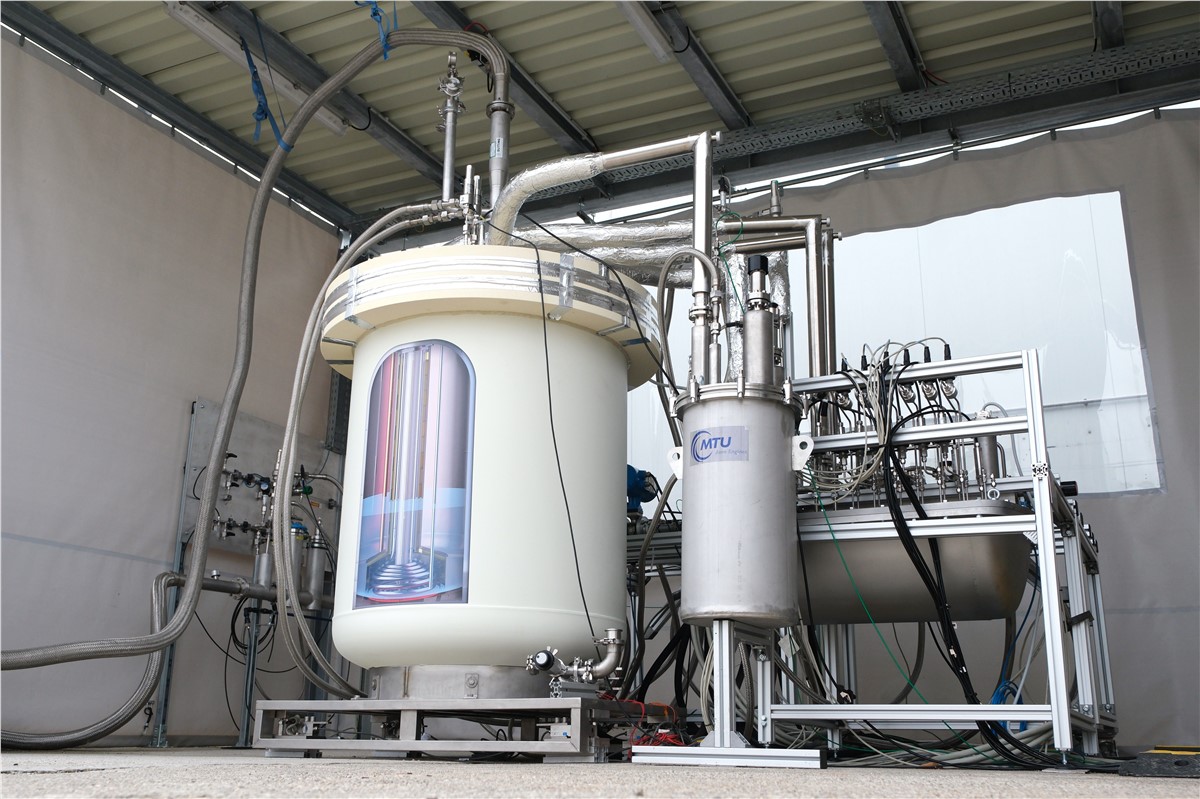MTU Aero Engines Achieves Milestone in Zero-Emission Flight with Liquid Hydrogen Fuel System Testing
Key Ideas
- MTU Aero Engines successfully completed multi-week testing of a liquid hydrogen fuel system for its Flying Fuel Cell™, marking progress towards zero-emission flight.
- The system architecture was validated as safe, reliable, and effective by key personnel at MTU and MT Aerospace, advancing the electrification of powertrains for commercial aviation.
- Liquid hydrogen storage and transport at -250°C, heating to a gaseous state, and feeding into the fuel cell were key aspects validated in the tests, setting the stage for future product-specific full-system testing in 2026.
- The successful testing paves the way for MTU to offer a high-performing LH2 fuel system solution for a variety of aircraft models, emphasizing the company's commitment to sustainable aviation technology.
MTU Aero Engines in Munich, Germany, has reached a significant milestone in the journey towards zero-emission flight by completing multi-week testing of a liquid hydrogen fuel system for its Flying Fuel Cell™ (FFC). The successful tests demonstrated the safety, reliability, and functionality of the system, allowing for a regulated supply of preconditioned hydrogen to the fuel cell. This development aligns with MTU's goal of electrifying powertrains for commercial aviation.
Collaborating with MT Aerospace AG, MTU is focusing on developing a comprehensive liquid-hydrogen fuel system for commercial aviation, including tanks, sensors, heat exchangers, valves, safety systems, and controls. The recent successful testing in Augsburg of the liquid hydrogen tank by MT Aerospace has laid a solid foundation for MTU's subsequent tests with liquid hydrogen.
The tested system operates with hydrogen stored in liquid form at around -250°C, which is then heated during operation and converted to a gaseous state for feeding into the fuel cell. Dr. Claus Riegler, Senior Vice President at MTU, emphasized the validation of this concept, encompassing all necessary sensors and functions for aircraft operations. The positive outcome serves as a strong starting point for MTU to provide an efficient and reliable liquid hydrogen fuel system solution for various aircraft models.
Looking ahead, the next phase involves testing a product-specific full-system FFC in 2026, with the liquid hydrogen system playing a central role in the evaluations. The successful completion of the recent tests sets the stage for continued innovation in sustainable aviation technology, reinforcing MTU's commitment to advancing eco-friendly solutions for the aerospace industry.
